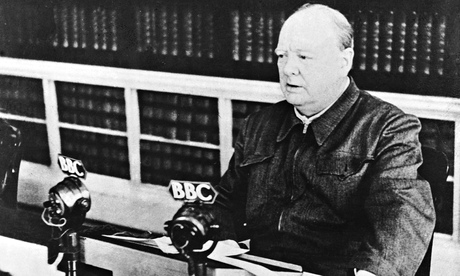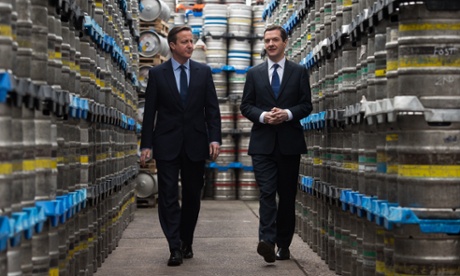The Institute for Fiscal Studies has attacked the spending plans of the UK’s two main parties, saying neither election manifesto “is a properly credible prospectus”.
In a wide-ranging review, the respected thinktank warned voters that Conservative party pledges to keep spending in check over the next parliament were likely to be torn up, leading to either higher taxes or higher borrowing.
The IFS report was also scathing about Labour’s plans. It chided Labour for producing a manifesto that relied on taxes that were unlikely to raise the sums the party has said they will, and for spending plans that were unlikely to be fulfilled within a five-year term.
“Labour would not be able to deliver investment spending increases on the scale they promise,” said IFS director Paul Johnson. “The public sector doesn’t have the capacity to ramp up that much, that fast.”
However, the IFS also admitted that the size and scope of the measures in the manifesto meant the outcome was difficult to gauge.
Johnson said the Tory tax and spending plans were unlikely to be delivered. “Should they win this time it is highly likely that the Conservatives would end up spending more than their manifesto implies and thus taxing or borrowing more.
“The chances of holding spending down as they propose over a five-year parliament look remote.”
Johnson, who has faced accusations from left of centre groups for pulling his punches when assessing Tory plans, said it was clear Boris Johnson had deliberately put forward “modest” plans. “Because to do otherwise would either mean resiling from their pledge to balance the current budget or would mean being up front about the need for tax rises to avoid breaking that pledge.
Johnson said the Conservative party had form when it came to proposing strict spending limits only to break them while in government.
He pointed out that the 2017 manifesto had pledged more austerity and spending cuts, but in reality public service spending had gone up, and was due to be around £27bn higher next year than implied by the Treasury. Looking back, he said, it was closer to the 2017 Labour pledge than the Tories’ own manifesto.
Tory plans would leave public service spending excluding health still 14% lower in 2023-24 than it was in 2010-11. “No more austerity perhaps, but an awful lot of it baked in,” Johnson said.
Labour’s plans to rake in far more tax, mainly from the corporate sector and higher taxes on the wealthy, needed to fund an £83bn increase in spending, were unlikely to raise the sums estimated, he said.
“In reality, a change in the scale and scope of the state that they propose would require more broad-based tax increases at some point. Much of Labour’s manifesto should presumably be seen as a long-term prospectus for change rather than a realistic deliverable plan for a five-year parliament.”
The Conservatives have pencilled in few tax changes beyond a small cut in national insurance contributions and a freeze on the corporation tax rate at 19%, scrapping an earlier pledge to cut it to 17%, saving £6bn.
“If you think things are pretty much OK as they are, then you will like the Conservatives’ proposals for tax and spend. If you want big increases in taxation and spending then Labour and the Liberal Democrats have plenty to offer,” Johnson said.
But a vote for the Conservatives carried the risk, he said, that their promise to exit the Brexit transition period by the end of 2020 could mean something rather like a “no deal” outcome. “That would harm the economy and of course increase the debt and deficit.”
Summing up, Johnson said while there were some spending increases for health and education already promised, there was “essentially nothing new in the Conservatives’ manifesto”.
“Labour, by contrast, want to change everything. Their vision is of a state with a far greater role than anything we have seen for more than 40 years. They would tax and spend more than ever before, putting in place a new universal welfare state with free childcare, free university, free personal care, free prescriptions and more besides; they would impose a swathe of new labour market regulations.”
A Labour plan to spend £58bn compensating Waspi women (Women Against State Pension Inequality) for losses during the equalisation of the state pension at 66 years of age over the last 25 years, was described as an “extraordinary” unfunded promise.
Johnson added: “In the face of such vast ambition from Labour, one should not forget that the Liberal Democrat manifesto is itself a radical document that would involve a decisive move away from the policies of the past decade.
“Rarely can a starker choice have been placed before the UK electorate.”












